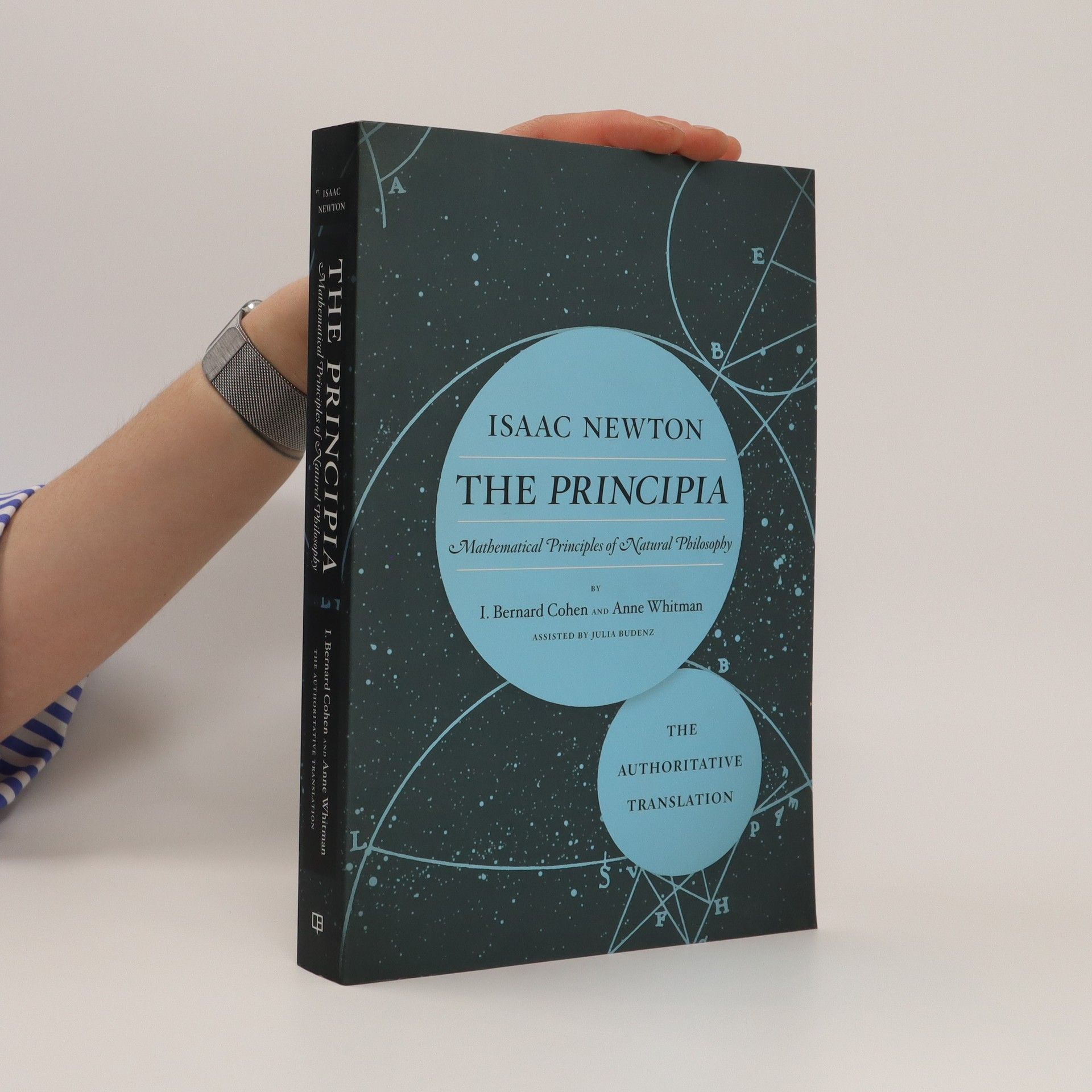Principia: The Authoritative Translation and Guide
- 992pages
- 35 heures de lecture
Presents Newton's unifying idea of gravitation and explains how he converted physics from a science of explanation into a general mathematical system.
Sir Isaac Newton fut un scientifique anglais dont les travaux en physique, mathématiques et astronomie ont profondément remodelé notre compréhension de l'univers. Ses théories révolutionnaires de la gravitation universelle et les lois du mouvement, détaillées dans son œuvre séminale, ont jeté les bases de la mécanique classique. Ce traité n'a pas seulement unifié les mouvements célestes et terrestres sous un seul ensemble de lois naturelles, mais a également fait progresser la révolution scientifique. Newton a également apporté de profondes contributions à l'optique et aux mathématiques, y compris le développement du calcul.







Presents Newton's unifying idea of gravitation and explains how he converted physics from a science of explanation into a general mathematical system.
Presents Newton's unifying idea of gravitation and explains how he converted physics from a science of explanation into a general mathematical system.
Presents Newton's unifying idea of gravitation and explains how he converted physics from a science of explanation into a general mathematical system.
This edition offers a comprehensive scholarly exploration of Newton's Opticks, including its precursors and related works. It features extensive notes and commentary that illuminate the text, providing context and analysis for readers. The meticulous presentation of historical and scientific material makes it an essential resource for those studying Newton's contributions to optics and the development of scientific thought.
A Treatise of the Reflections, Refractions, Inflections and Colours of Light
Focusing on the principles of color and light, this influential work showcases Isaac Newton's groundbreaking experiments and discoveries about the color spectrum. It delves into the nature of light, revealing insights that have significantly shaped our understanding of optics and color theory.
A new, popular abridged edition with a clear introduction. The Principia is one of the most important scientific works ever written and continues profoundly to impact on modern science. It states Newton's Laws of Motion and Law of Universal Gravitation revealing Newton as a rare genius, revolutionizing our understanding of the world around us.
V předloženém svazku nabízíme překlad vybraných pasáží vrcholného díla Isaaca Newtona (1643–1727) Matematické principy přírodní filozofie (1687). Newton v něm završil vývoj raně novověké fyziky, astronomie a přírodní filozofie a představil nový obraz světa založený na matematice a fyzikálním pojmu gravitační síly. Náš výbor obsahuje předmluvy k Principům a úvodní části spisu, které definují hlavní fyzikální pojmy a vyslovují základní principy Newtonovy mechaniky. Překlad dále zahrnuje vybrané pasáže třetí knihy Principů, která prostřednictvím nově zavedeného pojmu gravitační síly vysvětluje stavbu Sluneční soustavy. Součástí knihy je rovněž překlad Newtonových dopisů reverendu Bentleymu z let 1692–1693. V těchto dopisech Newton reaguje na otázky, které se týkají povahy gravitační síly, kosmologie a úlohy Boha ve vesmíru. Překlad doprovázejí dva úvodní texty, které představují historický kontext Newtonova díla a fyzikální výklad nejdůležitějších částí Principů.
Isaac Newton ; Ausgewählt, übersetzt, Eingeleitet Und Herausgegeben Von Ed Dellian. Translation Of: Philosophiae Naturalis Principia Mathematica. Includes Indexes. Bibliography: P. [xxxvii]-xli.